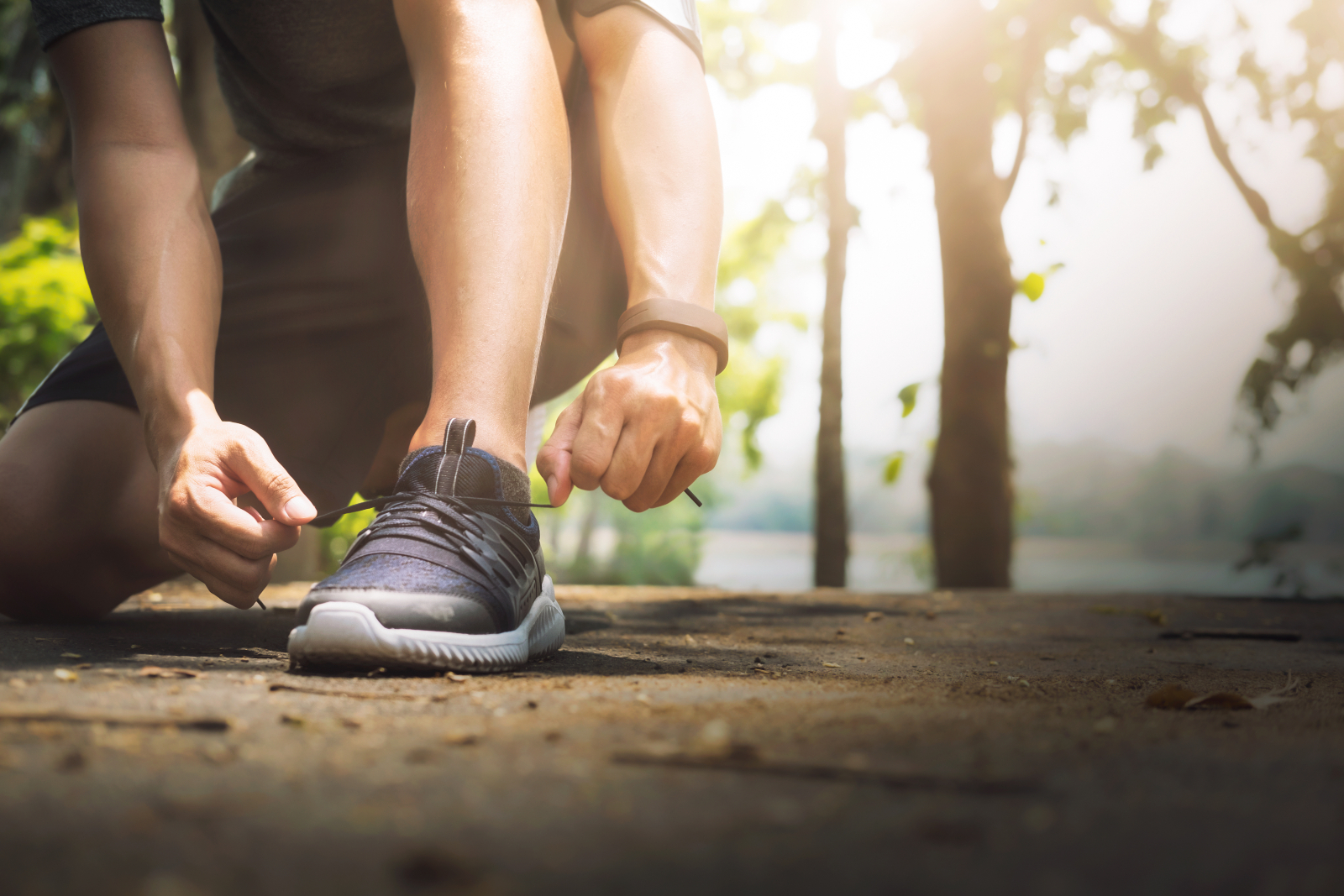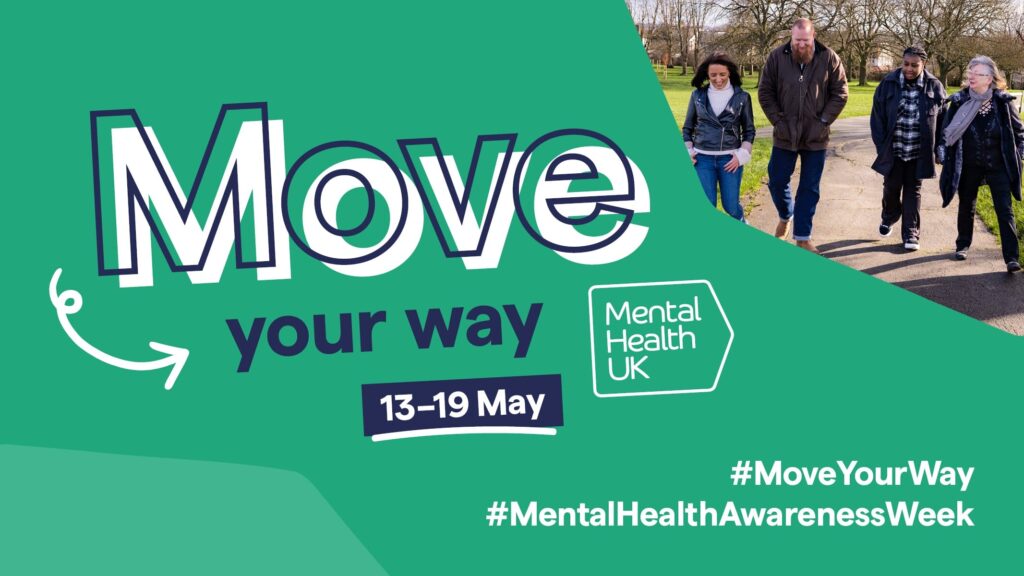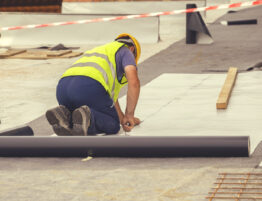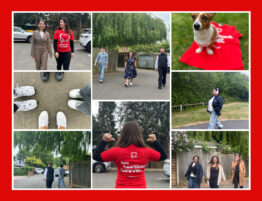
This year’s Mental Health Awareness Week began on Monday 13th and will run through to Sunday 19th May 2024. The theme, set by the Mental Health Foundation, is ‘Movement: moving for our mental health,’.
Acknowledging that being physically active is great for our bodies and minds, the campaign calls on everyone to find and do something that gets you moving. Read on to find out more about why movement is so important for mental health.
Why movement matters
Regular exercise or physical activity is not only great for our bodies (helping to prevent many physical illnesses) but it also releases ‘feel good’ hormones in the body and that’s great for our mental health and wellbeing. The benefits include:
- Less tension, stress, and mental fatigue
- Reduced mental health concerns like anxiety and depression
- A natural energy boost
- A sense of achievement
- More focus and motivation
- Feeling less angry or frustrated
- Having fun
- Feeling better about our bodies
- Improved sleep
- An opportunity to connect with others (e.g. through team/ group activities)
What’s stopping us?
When asked if they believed that regular physical activity is important for mental health and wellbeing, 82% of UK adults agreed. Despite this, over a third of people in the UK are not meeting the recommended guidelines for physical activity.
The problem is often about barriers which prevent people taking up exercise – things like not living near to facilities or open space, having little time or low energy to fit exercise into their day, financial constraints, lacking confidence, having a poor body image, or simply having a negative association with the idea of ‘exercise’.
Where and how we work can also be factors in terms of how much we move during the day. While construction workers are among the most active (notching up an average of 12,000 steps a day), many people are in jobs that require far less physical activity. It’s estimated that those in desk jobs only take around 4,800 steps during their working hours.
Move your way

The message from Mental Health Awareness Week is to find a way to move a bit more – and do it your way. Even though construction workers might feel they’re doing enough, steps alone do not give a complete picture of fitness (some fitness trainers suggest there’s room for strength and cardio work too). So, whether you want to take up an exercise regime or just find a way to move more, here are a few tips:
- If you’re anxious or unconfident about exercising, find an activity and environment you feel most comfortable with (e.g. alone or in a group, high-intensity or low-impact) and set yourself some achievable goals. Acknowledge your accomplishments, noticing how your self-esteem is boosted by your activities.
- Practice positive body talk. For example, rather than say; “I’m going to the gym because I need to lose weight” rephrase this to “I want to nurture my body and mind by going to the gym”.
- If physical health issues are stopping you, start by seeking advice from a medical professional and find a regime that will challenge you without causing a problem.
- Prevent injuries by warming up and cooling down (and taking breaks when your body needs it). Also check your diet is giving you the vitamins and minerals you need for the exercise, making adjustments or taking a supplement where this would be helpful.
- If your finances are a bit stretched, seek out free activities like walking, jogging or running, following a YouTube video, or downloading one of the many Apps that offer ideas and tracking for exercise. You could also look for classes held at local community centres or churches as these are usually much lower in cost than a gym.
- If you just want to move a bit more, remember that this doesn’t need to involve going to the gym, running a marathon or taking part in a team sport – and it doesn’t need to take up hours of your day or cost the earth. It can be as simple as stepping off the bus a stop early, making your next meeting a ‘walk and talk’ one, kicking a ball around the park with your child after school, doing some stretches in your lunch break or dancing in your kitchen while you cook dinner!
For more ideas of how you might fit in more movement at work (for those with sedentary or moderate activity level jobs), take a look at this poster from Mental Health UK.
Do you have additional tips for getting more movement into you daily life? Share them with us in the comments on our Facebook or LinkedIn pages.
15.05.2024
Feature image: Freepik
Other images: Mental Health UK
Information source: Mental Health UK and Mental Health Foundation








